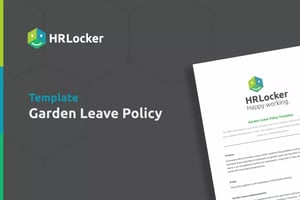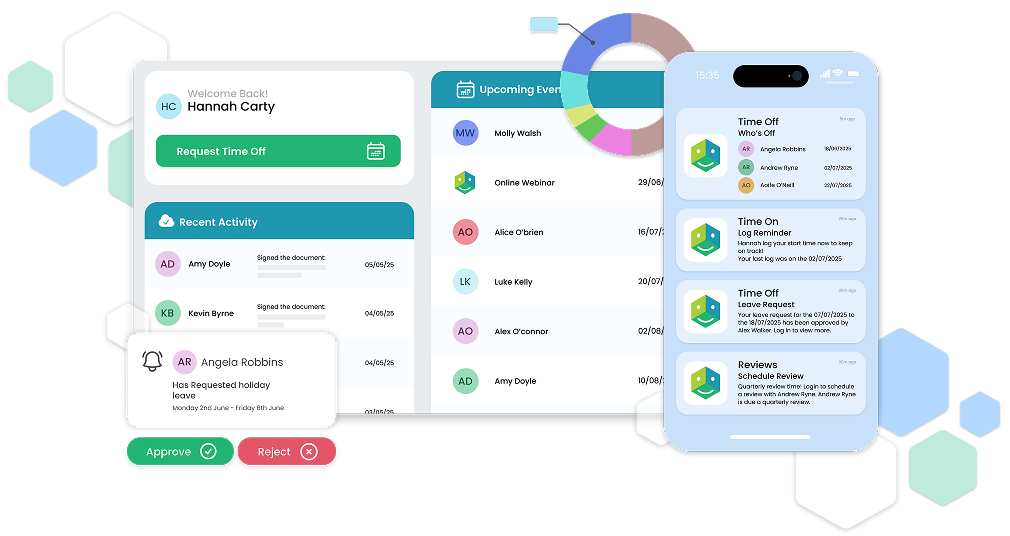What is Garden Leave?
Garden leave, also known as gardening leave, refers to a practice in employment where an employee who has resigned or is being terminated by their employer is required to stay away from the workplace during their notice period. During this time, the employee remains on the payroll and is typically not allowed to perform any work-related tasks or access sensitive company information. The idea is to give employees time to disengage from their current roles and prepare for their next endeavour.
Just as a garden requires nurturing to flourish, employees on garden leave can utilise this time to nurture personal and professional growth. Here, we cover the finer points of garden leave, your rights, the benefits, and strategies to make the most of this unique period.
Garden Leave Rights
When you put an employee on garden leave, you can stop them from coming to the workplace. You can also prevent them from talking to coworkers, clients, or competitors. To do this, you need to have a garden leave clause in their work agreement. You can only use it when they’re finishing their time at the company, when the employee resigns and gives their notice period, or when you are dismissing them. If this happens, you must communicate to them the reason you are terminating their employment face-to-face and in writing.
There are garden leave employee rights too, such as you must keep paying employees whilst they are on garden leave. Also, you can only keep them on garden leave for a maximum of six months.

Why should you have a garden leave clause in your employment contract?
Protecting sensitive information
A garden leave clause allows employers to protect their proprietary information, trade secrets, and confidential data. By placing an employee on garden leave, the company can prevent them from immediately moving to a competitor and potentially sharing sensitive information.
Preventing competitive advantage
Suppose one of your employees is leaving to join a competitor. In that case, garden leave can prevent them from gaining an unfair advantage by using the knowledge they gained at your company to benefit their new employer.
Maintaining client relationships
Garden leave provides employers with time to transition client relationships and maintain continuity in client interactions. This prevents employees from quickly taking clients with them to their new workplace.
Avoiding disruption
In situations where an employee’s departure could lead to disruption or conflicts within the team or projects, garden leave can offer a buffer period for the company to make necessary adjustments and minimise disruptions.
Ensuring smooth handover
Employers can use garden leave to ensure a proper handover of responsibilities to a replacement employee. This helps maintain operational efficiency and minimises the impact of the departing employee’s absence.
Protecting business interests
A garden leave clause demonstrates the employer’s commitment to safeguarding its business interests. It sends a message that the company takes measures to prevent potential risks associated with departing employees.
Adhering to non-compete agreements
If there is a non-compete agreement in place, garden leave can serve as a practical way to enforce its terms by restricting the employee’s engagement with competitors during the notice period.
Strategic use of time
Employers can utilise the garden leave period to strategically plan and make adjustments to the team, projects, or operations without the immediate influence of the departing employee.
Legal protection
Having a garden leave clause in the contract provides legal support if the employer decides to place an employee on garden leave. It ensures that the process is clearly defined and understood by both parties.
Including a garden leave clause in the employment contract gives employers the flexibility to manage employee departures in a way that aligns with their business objectives and safeguards their interests. It’s important to draft the clause carefully to ensure its effectiveness and fairness to both parties involved.
Free Garden Leave Policy Template
The HRLocker Garden Leave Policy Template outlines the guidelines and procedures to be followed when placing an employee on garden leave during their notice period.
This template has been created so that you can adapt the policy to your company and employees’ needs.
Employee Benefits of Garden Leave
Reflect and recharge
Garden leave offers employees the opportunity to reflect on their career trajectories, recharge their mental batteries, and evaluate their personal and professional goals.
Skill Enhancement
During this time, individuals can focus on enhancing their skills, acquiring new knowledge, and even pursuing certifications that could boost their future career prospects.
Networking
Garden leave can be a prime opportunity to expand professional networks. It gives employees time to attend workshops, seminars, and networking events relevant to their field.
Job search
With a reduced workload, individuals can dedicate time to a strategic job search, tailoring their CVs, perfecting their LinkedIn profile, and reaching out to potential employers.
Transition planning
If the employee is transitioning to a new job, garden leave provides the chance to smoothly transition out of their current role, complete projects, and ensure a smooth handover process.
Ultimately, placing an employee on garden leave can be costly and is typically reserved for senior employees or those with access to sensitive information (C-level executive positions and sales positions, for example). Nevertheless, proactive measures are invaluable. Ensuring the presence of a garden leave clause within employment contracts, securing employee signatures on the agreement, and storing it safely for convenient access using an online HR data storage solution like HRLocker will position you to respond effectively should the need for its implementation arise.










